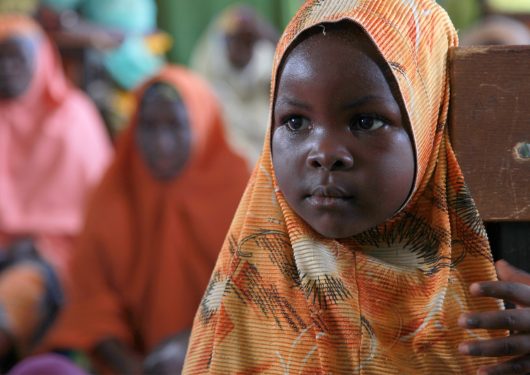An Expanding Country: Four of the Main Causes of Poverty in Nigeria

Nigeria, located on the west coast of Africa, is a country known for its booming oil economy and the number of people it harbors within its borders. With a population of nearly 200 million, it’s the most populous country in all of Africa. But while the economy of Nigeria continues to expand, the amount of people living in poverty in Nigeria grows along with it.
As of 2016, 112 million Nigerians live in poverty. In 1990, that number was 51 million. As Nigeria continues to grow, the number of people that live in poverty within its borders should not expand with it. To alleviate poverty, it’s important to understand the causes. Here are four of the root causes of poverty in Nigeria.
1. Government Corruption
Since its founding, government corruption has plagued Nigeria. This corruption is one of the major causes of poverty in Nigeria. Government officials often take payments from oil companies that are supposed to go into public trusts—payments that can often total more than $1 billion—and instead siphon that money into their own personal bank accounts.
When government officials engage in this kind of corruption, the poor and underserved populations within Nigeria are inevitably hurt. If these large sums of money stopped going into government officials’ pockets, the Nigerian government could use that money to build up the country’s infrastructure—electricity, roads, running water and more.
2. Lack of Economic Infrastructure
An infrastructure that supports economic growth at every level is essential to pull people out of poverty. In Nigeria, economic infrastructure includes things like access to micro-credit that help farmers invest in their crops and entrepreneurs lift their businesses off the ground. Micro-credit is an especially important tool for Nigerian women working to escape poverty.
Female entrepreneurship and autonomy can provide financial stability to entire families and, by extension, larger communities. Another one of the main causes of poverty in Nigeria is the simple fact that many Nigerians, especially in rural communities, do not have the means to escape their circumstances. Setting up economic structures that empower Nigerian people is vital to combating poverty within the country.
3. Poor Access to Education
Economic infrastructure is not the only infrastructure that is lacking in Nigeria. Currently, a lack of a robust educational system underserves many of the poorest Nigerians. 10.5 million Nigerian children do not attend school at all, and 60% of those children are girls.
These problems are especially profound in the northern, more rural parts of Nigeria. Terrorist groups such as Boko Haram that vilify Western education further exasperate the situation. Education gives many the skills they need to enter the workforce and escape impoverishment, and the lack of educational opportunity is one of the truly devastating causes of poverty in Nigeria.
4. Poor Access to Healthcare
Nigeria might be the most populous country in Africa, but they are running low on healthcare professionals. The current ratio of nurses, midwives and doctors to patients is 1.95 to 1,000.
With such a low density of medical care available, many people in Nigeria either go completely without medical care or without enough medical care. But sickness is costly, and oftentimes can trap people into never-ending cycles of poverty. Improving Nigerians’ access to healthcare is an essential step to reduce the amount of poverty in Nigeria.
At the surface, these problems can seem daunting and unsolvable. But the first step to crafting sustainable solutions is understanding the contours of the problem. By understanding the causes of poverty in Nigeria, organizations like UNICEF and WHO have started various initiatives to strengthen the economic, education, and health care infrastructure in Nigeria, as well as reduce government corruption.
Working hand in hand with international partners, Nigeria is continuously demonstrating its commitment to crafting a better future for its impoverished citizens.
– Adesuwa Agbonile
Photo: Flickr
